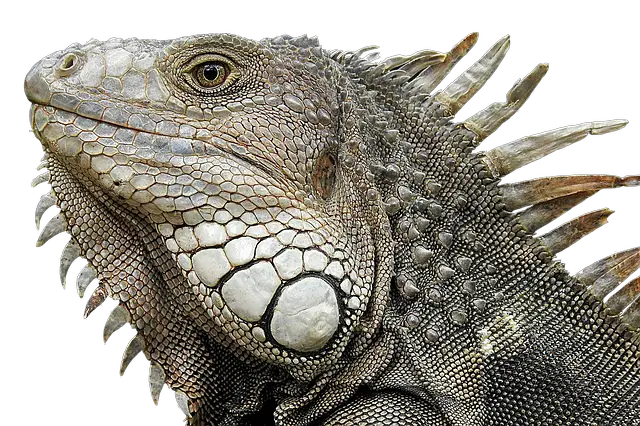Have you ever wondered if your pet lizard remembers you? Do they have the ability to form memories and recall past experiences? These are common questions among lizard owners and enthusiasts.
Research has shown that lizards can remember and recognize familiar individuals, including their owners. In addition, some species of lizards exhibit behaviors that suggest they have formed strong bonds with their human caretakers.
While the extent of their memory and cognitive abilities may vary between species, it is clear that lizards are not simply mindless creatures. Instead, understanding their capacity for memory and learning can deepen our appreciation for these fascinating animals and inform how we interact with them in captivity and the wild.
Lizards’ Cognitive Abilities
Studies have shown that lizards have impressive cognitive abilities, including memory. While their brains are much smaller than those of mammals, they can still learn and remember various things.
One study found that lizards could remember the location of a food reward for up to two months, even when the reward was moved to a different location. This suggests that lizards have a spatial memory, which is the ability to remember the location of objects in space.
Lizards have also been shown to have the ability to learn and remember visual cues. For example, in one study, lizards were trained to associate a specific color with a food reward. The lizards could then remember this association even after a week-long break from training.
Additionally, some species of lizards have been shown to have the ability to recognize individual humans. This suggests that lizards can remember specific individuals and may even form social bonds.
Overall, while lizards may not have the same level of cognitive abilities as mammals, they can still learn and remember various things, including spatial information and visual cues.
Lizards’ Memory Capacity
When it comes to the memory capacity of lizards, there is still much to be learned. However, research has shown that lizards have some memory retention levels.
One study on the western fence lizard found that they could remember the location of food sources for up to two weeks. This suggests that lizards have a short-term memory that allows them to recall information for a limited period.
Another study on the green anole lizard found that they could remember the location of a hidden platform for up to two months. This indicates that some species of lizards may have a longer-term memory capacity.
It is important to note that the memory capacity of lizards can vary depending on the species and individual. In addition, factors such as age, environment, and experience can all play a role in the development and retention of memory.
Overall, while the memory capacity of lizards may not be as advanced as some other animals, they possess some memory retention that allows them to remember important information for some time.
Do Lizards Remember You?
Many people who own lizards as pets often wonder if their lizards remember them. Unfortunately, the answer to this question is not straightforward, as it depends on several factors, such as the species of the lizard, the frequency and nature of interactions with humans, and the individual lizard’s personality.
Studies have shown that some species of lizards, such as the bearded dragon, can recognize their owners and respond to their presence. This is because these lizards have a relatively high level of intelligence and are social animals that thrive on interaction with others.
However, other species of lizards may not have the same level of cognitive ability and may not recognize their owners. For example, some species of geckos are known to be solitary animals that prefer to keep to themselves, and they may not show any signs of recognition or attachment to their owners.
It’s important to note that even if a lizard does recognize its owner, it may not necessarily form an emotional bond or attachment. This is because lizards are incapable of feeling emotions as humans do, and they may associate their owners with positive experiences, such as receiving food or attention.
In conclusion, while some species of lizards may have the ability to recognize their owners, it’s important to remember that this does not necessarily mean that they have a deep emotional connection.
Lizards are fascinating creatures with unique personalities and behaviors, and they should be appreciated for their individuality rather than their ability to remember humans.
Factors That Affect Lizards’ Memory
Several factors can affect a lizard’s memory, including:
- Species: Different species of lizards have varying intelligence and memory capabilities. For example, some species of lizards, such as the monitor lizard, have been shown to have excellent memory retention. In contrast, others, like the gecko, have been found to have a relatively poor memory.
- Age: As with many animals, a lizard’s memory can decline. Studies have shown that older lizards have a reduced ability to remember things compared to younger ones.
- Experience: A lizard’s memory can be influenced by its experiences. For example, if a lizard has had a negative experience with a particular predator, it may remember that predator and avoid it.
- Environmental factors: The environment in which a lizard lives can also affect its memory. For example, lizards that live in complex environments with many hiding places and opportunities for exploration may have better memories than those that live in more austere environments.
While some species of lizards have been shown to have good memory retention, lizards’ ability to remember things is still not fully understood. More research is needed to understand the factors that affect their memory fully.
Types of Lizards
There are over 6,000 species of lizards, and they come in various shapes and sizes. Here are a few examples of some of the most common types:
Iguanas
Iguanas are large, herbivorous lizards native to Central and South America. They are known for their distinctive spines, which run down their backs, and their long tails. Iguanas are popular pets, but they require a lot of care and attention.
Geckos
Geckos are small, nocturnal lizards that are found all over the world. They are known for their distinctive toe pads, allowing them to climb walls and ceilings. Geckos are popular pets, and they come in a wide variety of colors and patterns.
Chameleons
Chameleons are famous for their ability to change color, but they are also known for their long, sticky tongues, which they use to catch insects. They are found in Africa, Madagascar, and other parts of the world, and they are popular pets because of their unique appearance.
Bearded Dragons
Bearded dragons are medium-sized lizards that are native to Australia. They are known for their distinctive “beards,” made of spiky scales under their chins. Bearded dragons are popular pets because of their docile nature and ease of care.
These are just a few examples of the many different types of lizards. Each species has unique characteristics and behaviors, which all play an essential role in their respective ecosystems.
Conclusion
While the research on lizard memory is still limited, it is clear that they are capable of learning and retaining information. For example, studies have shown that lizards can remember the location of food sources, recognize familiar individuals, and even navigate complex mazes.
However, it is essential to note that the extent of their memory capabilities may vary across different species of lizards. Depending on their environment and behavioral patterns, some species may have better memory retention than others.
Overall, it is safe to say that lizards have a memory to some degree, but more research is needed to understand the extent of their cognitive abilities fully. Nevertheless, as fascinating creatures with unique behaviors and adaptations, lizards continue to intrigue researchers and animal enthusiasts alike.









